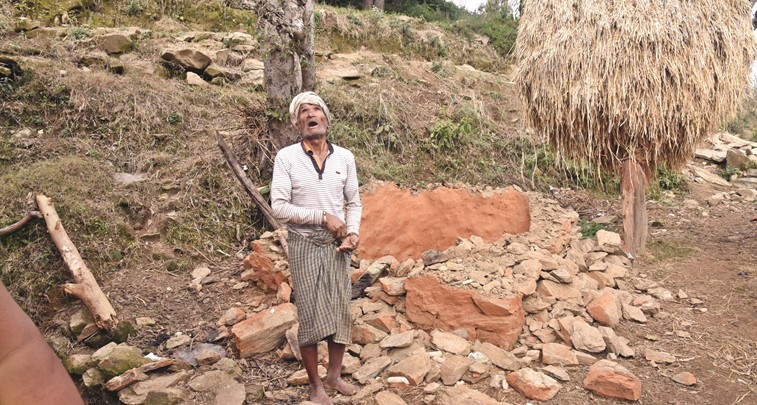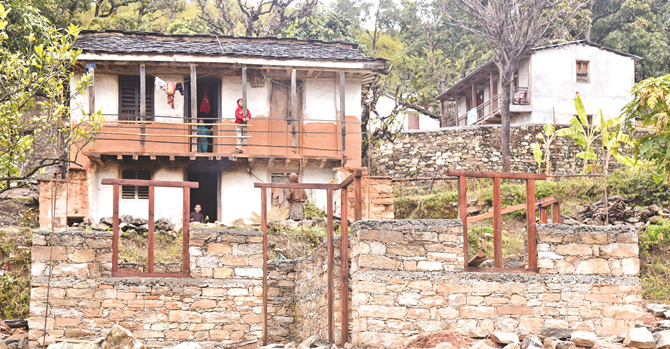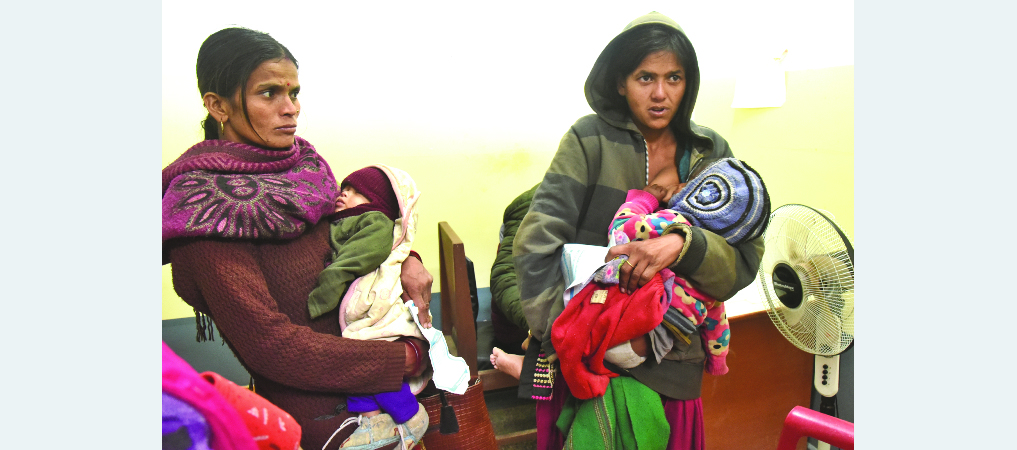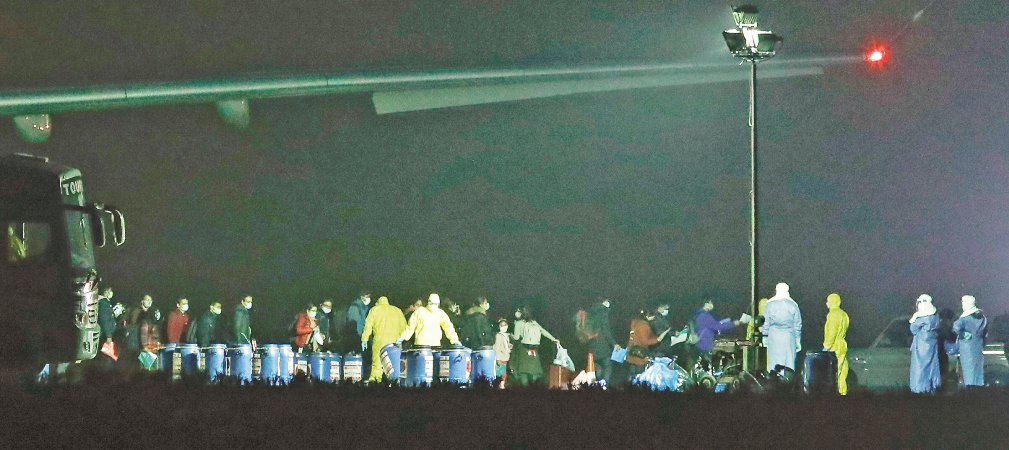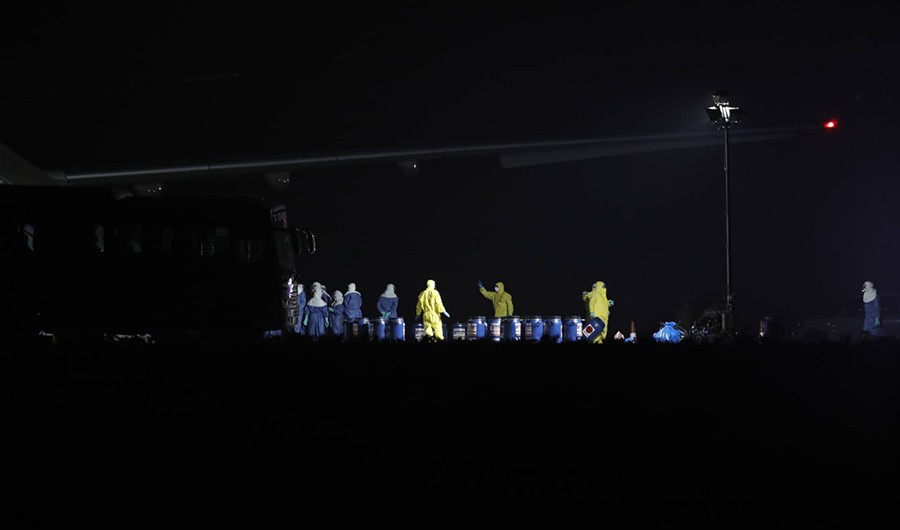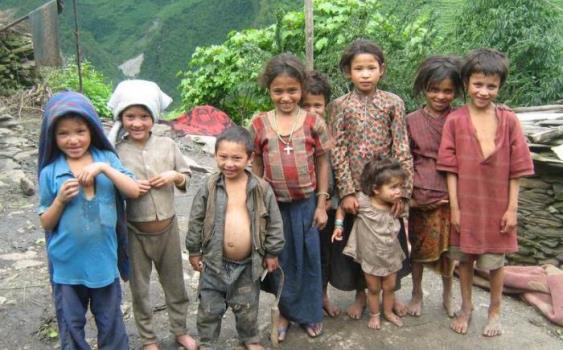Blind woman feels breast to locate cancerous lumps

Kathmandu, Aug. 19: Do women feel more comfortable of being screened for breast cancer in the capable and trained hands of a blind examiner? The modern technique has now made this possible.
At an event organised by the Nepal Mediciti Hospital in Lalitpur, on Saturday, a visually impaired woman from India demonstrated the Tactile Breast Examination procedure, which is a unique breast screening technique.
During the demonstration, the woman made a grid on the breast with strips of tape, marked the co-ordinates in Braille. She slowly touches the way along this grid so that she finds a lump and its exact location.
Tactile Breast Examination is a kind of screening that uses the highly developed sensory skills of visually impaired women for manual breast health screening.
The Mediciti Hospital in collaboration with the Discovering Hands, a foundation based in Germany, is providing training to visually impaired women of Nepal to use their tactile capabilities for detecting early breast cancer.
Discovering Hands is a unique initiative from Germany that trains visually impaired women to become Medical Tactile Examiners (MTE) using their highly developed tactile sense to identify the minutest abnormalities in the breasts.
Speaking at the event, German gynecologist Dr Frank Hoffmann said, “Doctors do not get enough time to find small lumps in the breast tissue by clinical examinations, which is crucial to catching breast cancer early."
Dr. Hoffmann said that people trained to read Braille have a highly developed sense of touch, suggesting that blind and visually-impaired women would be better qualified than anyone else to carry out breast examinations.
The research and practice has already suggested that blind people can in fact detect tumors earlier than their sighted counterparts.
For visually impaired women the disability would become their strength. They would be reliant and can help others, said Chairman of Mediciti Hospital, Dr.Upendra Mahato.
‘Though we could not enter the world high class technologies in the health sector, we could adopt the available resources within our reach’, said Dr Mahato.
Dr Hoffmann said that he founded his organisation, Discovering Hands, as early detection of breast cancer increases chances for survival and reduces burden of treatment.
"Women doing self-examinations can feel tumors which of 2cm and larger," said Shalini Khanna, Director of National Association for the Blind (Centre for Blind Women) of India.
"Doctors usually find tumors between 1cm and 2cm, whereas blind examiners find lumps between 6mm and 8mm,” said Khanna, presenting the Indian case study on MTE.
Speakers suggested that Discovering Hands should reach out to more women in different parts of Nepal through Mediciti Hospital in empowering more blind women to make them independent in their lives by serving others.
According to the World Health Organization (WHO), breast cancer is the most common cause of women’s death in both developed and developing countries, claiming the lives of 600,000 women globally.
Breast Cancer has become substantial burden on the Nepali healthcare system. The WHO Cancer Country Profile-2014 data noted the number of cases of breast cancer in Nepal was 1,716 (as of 2014). It is the second most common malignancy among Nepali women, and the number is reportedly increasing every year.
Recent News

Do not make expressions casting dout on election: EC
14 Apr, 2022
CM Bhatta says may New Year 2079 BS inspire positive thinking
14 Apr, 2022
Three new cases, 44 recoveries in 24 hours
14 Apr, 2022
689 climbers of 84 teams so far acquire permits for climbing various peaks this spring season
14 Apr, 2022
How the rising cost of living crisis is impacting Nepal
14 Apr, 2022
US military confirms an interstellar meteor collided with Earth
14 Apr, 2022
Valneva Covid vaccine approved for use in UK
14 Apr, 2022
Chair Prachanda highlights need of unity among Maoist, Communist forces
14 Apr, 2022
Ranbir Kapoor and Alia Bhatt: Bollywood toasts star couple on wedding
14 Apr, 2022
President Bhandari confers decorations (Photo Feature)
14 Apr, 2022


